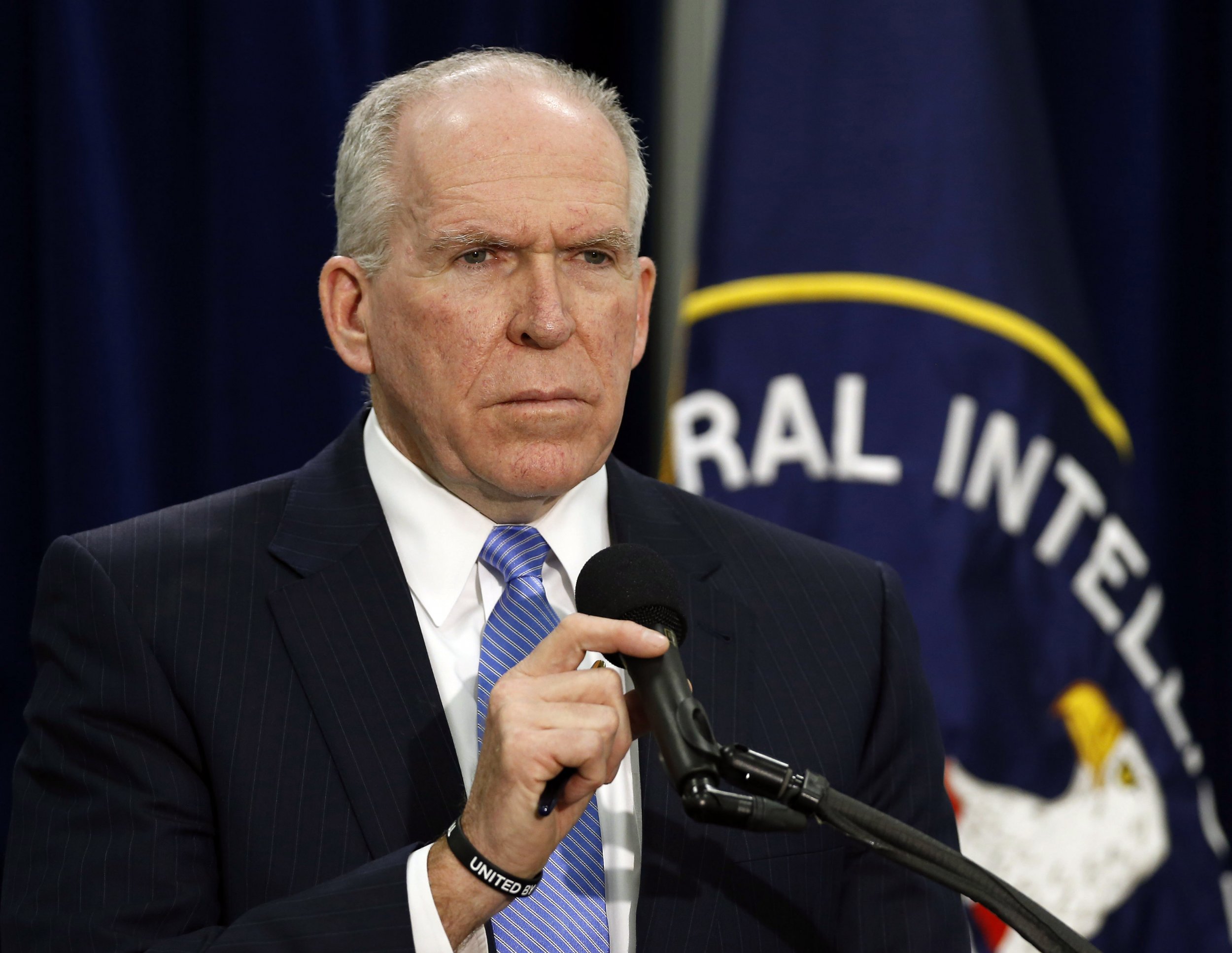
CIA Director John Brennan made a rare public speech Thursday to defend his agency's actions in the wake of the September 11, 2001, terrorist attacks and beyond. Brennan's remarks came after the release on Tuesday of a scathing report by the Senate Intelligence Committee which concludes the CIA's use of enhanced interrogation techniques—what President Obama and others have called "torture"—did not produce "unique, otherwise unavailable intelligence," contrary to CIA claims, and that the CIA misled government officials about the efficacy and necessity of such measures. "There were no easy answers," following 9/11, Brennan said, "and whatever your views are on EITs [enhanced interrogation techniques], our nation and in particular this agency did a lot of things right during this difficult time to keep this country strong and secure."
Brennan was appointed by President Obama as director of the CIA in March 2013. He was deputy executive director of the CIA at the time of 9/11.
In the immediate aftermath of 9/11, Brennan said, the Bush administration called upon the CIA to implement a detention and interrogation program for suspected terrorists. "In many respects, the program was uncharted territory for the CIA and we were not prepared," he said. "We had little experience housing detainees, and precious few of our officers were trained interrogators. But the president authorized the effort six days after 9/11, and it was our job to carry it out."
Brennan conceded that, "[in] a limited number of cases, agency officers used interrogation techniques that had not been authorized, were abhorrent and rightly should be repudiated by all," but insisted "the overwhelming majority of officers involved in the program at CIA carried out their responsibilities faithfully and in accordance with the legal and policy guidance they were provided."
"CIA officers' actions that did comport with the law and policy should neither be criticized nor conflated with the actions of the few who did not follow the guidance issued." Brennan said.
Brennan also disputed the committee's claim that his agency "systematically and intentionally misled" government officials over the efficacy and necessity of such methods, saying "the record simply does not support" that claim. Brennan blasted the 500-page report for conveying "a broader view of the CIA and its officers as untrustworthy," saying such a view, "in no way comports with my experience in the CIA."
Brennan further criticized the committee for what he described as an "unusual" process in crafting its report. "In the vast majority of cases, SSCI's congressional reports have been the result of collaborative, bipartisan investigations.," Brennan said. In this instance, however, "the committee could not agree on a bipartisan way forward," Brennan said. He also noted that the committee failed to interview any CIA personnel during the course of its investigation. "Although we view the process undertaken by the committee when investigating the program as flawed, many aspects of their conclusions are sound and consistent with our own prior findings." he said.
Brennan did not directly address the committee's claim that the use of so-called enhanced interrogation techniques (the CIA's term for practices that include torture) did not produce critical intelligence. "There was useful intelligence—very useful, valuable intelligence that was obtained from individuals who had been at some point subjected to the EITs," Brennan said. "Whether that could have been obtained without the use of those EITs is something...that is unknowable."
Senator Diane Feinstein, D-California, chairwoman of the Senate Intelligence Committee and author of the report's executive summary, took to Twitter to dispute that claim and others.
Brennan: "unknowable" if we could have gotten the intel other ways. Study shows it IS knowable: CIA had info before torture. #ReadTheReport
— Senator Dianne Feinstein (@SenFeinstein) December 11, 2014
Study definitively proves EITs did not lead to bin Laden. Page 378. #ReadTheReport
— Senator Dianne Feinstein (@SenFeinstein) December 11, 2014
500-page exec summary is small part of 6,700-page report. No cherry picking. Everything is documented by 38,000 footnotes. #ReadTheReport
— Senator Dianne Feinstein (@SenFeinstein) December 11, 2014
Uncommon Knowledge
Newsweek is committed to challenging conventional wisdom and finding connections in the search for common ground.
Newsweek is committed to challenging conventional wisdom and finding connections in the search for common ground.
About the writer
Taylor is a general assignment reporter for Newsweek where he writes about U.S. politics, crime and courts, religion, marijuana law, ... Read more
To read how Newsweek uses AI as a newsroom tool, Click here.





